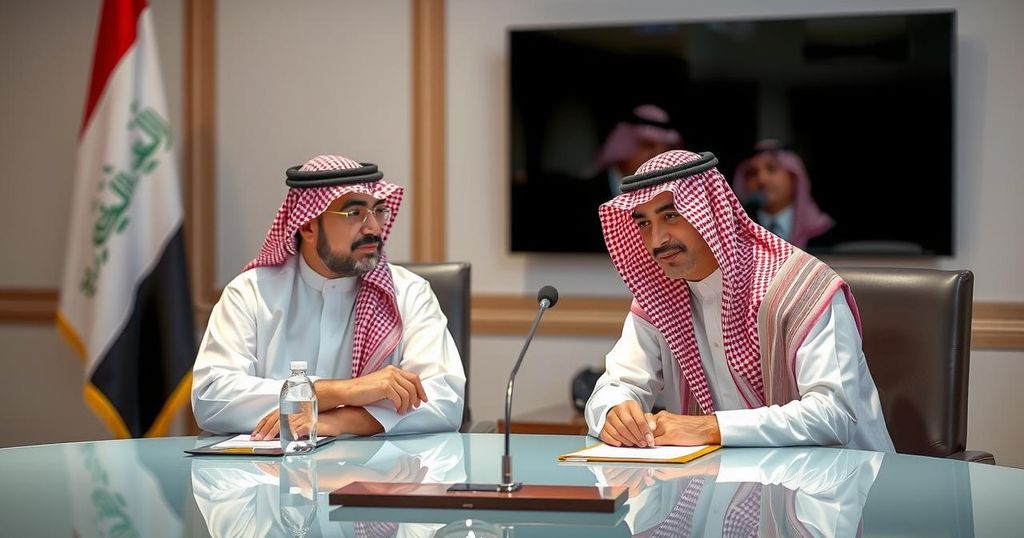Syria Seeks Qatar’s Support for Reconstruction Efforts Amid Economic Sanctions

Syria’s Foreign Minister Asaad Al-Shaibani met with Qatar’s leadership in Doha to discuss reconstruction plans and economic sanctions. He emphasized Qatar’s roles as a strategic partner and requested the lifting of U.S. sanctions to facilitate Syria’s recovery. The engagement could also pave the way for energy projects impacting regional dynamics.
On January 5, Syrian Foreign Minister Asaad Al-Shaibani engaged in significant discussions with Qatar’s Prime Minister and Foreign Minister Sheikh Mohammed bin Abdulrahman bin Jassim Al Thani in Doha. The talks centered on a comprehensive blueprint for reconstructing Syria, alongside deliberations on the impact of economic sanctions. Al-Shaibani articulated his vision for a revitalized Syria, emphasizing the importance of civil rights and an inclusive government that reflects societal diversity.
Furthermore, he acknowledged Qatar’s vital support during Syria’s prolonged difficulties, deeming the nation a strategic ally in the reconstruction process. Additionally, Al-Shaibani expressed concerns regarding existing economic sanctions, characterizing these measures as detrimental to the Syrian populace and a barrier to prompt economic healing. He urged the United States to revoke the sanctions, which he believes would facilitate the establishment of a harmonious and cooperative Syria.
Al-Shaibani framed his ideal of a “new Syria” as one defined by peaceful relations with neighboring countries and characterized by justice, freedom, and equality for all citizens. This vision seeks to foster a renewed sense of national belonging among the Syrian people. Notably, Qatar was the first Arab nation to engage diplomatically with the new Syrian leadership in December, reflecting its proactive role in regional politics. This engagement may also pave the way for a potentially influential gas pipeline project linking Qatar to Turkey via Syria, which could reshape regional energy supplies and lessen European dependence on Russian gas.
However, the broader Arab response to the shifting power dynamics in Syria remains cautious, particularly given the ascendance of Islamist factions under the leadership of Ahmed al-Sharaa, a figure known as Abu Mohammed al-Jolani.
The Syrian conflict has been ongoing for over a decade, resulting in significant humanitarian and infrastructural repercussions throughout the region. As Syria strives for reconstruction post-conflict, international engagement is pivotal. Qatar has emerged as an influential player due to its supportive stance during past adversities and its current diplomatic endeavors with Syria’s new leadership. The offer of assistance comes amidst a backdrop of economic sanctions, primarily imposed by Western nations, which complicate Syria’s recovery efforts. Shifts in alliances and regional dynamics, particularly concerning energy resources, are integral to understanding Syria’s path forward.
In conclusion, the meeting between Syrian officials and Qatari leadership marks a significant step towards rekindling diplomatic relations and exploring avenues for reconstruction and economic collaboration. The focus on a roadmap for building an inclusive government, alongside the urgent call for the lifting of sanctions, highlights the complexities surrounding Syria’s recovery. Furthermore, Qatar’s strategic interests, including potential energy projects, underscore its influential role in the region’s political landscape.
Original Source: www.intellinews.com








